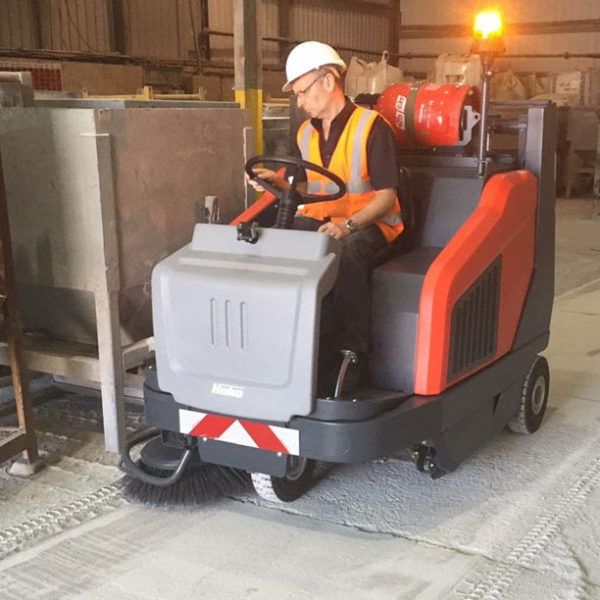Home » Product News » HEPA Filters by Hako Machines
HEPA Filters by Hako Machines

Are you aware of the risk Silica dust can cause your business and your employees? Silica (silicon dioxide) is the largest risk to workers after asbestos. It is vital that you know the dangers of Silica dust and how to prevent the damage it causes. Below, you can learn more about silica and how to protect yourself or employees against it.
What is Silica?
Silica is a natural substance found in most rocks, sand or clay and in products such as bricks and concrete. Fine silica dust is created by undertaking many construction tasks such as; grinding, drilling and cutting.
Silica dust is not visible to the human eye but only a small amount of silica dust in the air is enough to be considered a risk. The most effective way to prevent Silica dust exposure is to keep it out of the air.
Why is Silica Harmful?
When silica dust is inhaled, it can cause serious harm to vital organs such as the lungs and kidneys. This can cause unfortunate life-changing diseases such as Chronic Obstructive Pulmonary Diseases (COPD), Asthma and Silicosis. Recent research conducted by HSE found that 4000 people die every year from chronic lung conditions and so appropriate measures must be taken in order to protect yourself and others.
How Can You Prevent The Dangers of Silica?
One of the best solutions for avoiding the dangers of silica is to use a HEPA filter on our sweeper machine. HEPA (High-Efficiency Particulate Air) filters work to trap air small, medium and large contaminants in a complex web of fibres to prevent the risk of silica dust being inhaled.
An advantage of the HEPA Filter is that as they become saturated with contaminant, airflow capacity decreases and static pressure increases, and, as a result, the filters become more efficient as the filter loads.
How Often Should I Replace a HEPA Filter?
HEPA filters tend to have a lifespan of approximately 3 and 5 years in a standard, cleanroom environment. Of course, there are variables and this can depend on the degree of contamination in the environment and maintenance of the pre-filters. The capacity of the fan filter unit (HEPA or ULPA filter) decreases over time as the filter will become saturated so it is important to monitor your filter over time to ensure it is in fully working order.
The recommended speed of the filter surface is 0.45 m/s. Once this can no longer be met, a replacement of the filter is required. This process is monitored by a differential pressure gauge and information made available via the cleanroom’s touchscreen control interface. For more information on how to maintain your HEPA filter, you can contact one of our experts here.
A Few More Things to Remember About Silica
- Even if you cannot see the silica dust, you may still be at risk.
- Always use water spray systems and proper ventilation in confined spaces.
- When dry sweeping is required, as other methods such as wet sweeping or HEPA vacuuming are not possible, HSE allows the use of dry sweeping with a HEPA filtration. For more information, you can visit www.hse.gov.uk
Order today With Hako
Hako Machines Ltd are now able to provide HEPA filters in all of their sweeper machines, HEPA filters can trap particles both large and small including Silica dust to reduce the risk of the harm caused by Silica in the air.
To order your HEPA filter, you can contact us our enquiries page here or give us a call Hako Machines Ltd today on 01788 825 600 or email CST@hako.co.uk.
-
Recent Posts
- 27Nov Beyond the Logo – Turning sponsorship into a partnership
- 8Oct Taylor-Smith ends record-breaking BTCC season with career-best finish
- 23Sep Aron Taylor-Smith crowned BTCC Independents Champion at Silverstone
- 27Aug Taylor-Smith triumphs with Independent hat-trick and podium at Donington BTCC
- 12Aug Aron Taylor-Smith shines at Knockhill with Independent double victory
News Categories
- Awards (10)
- BTCC (11)
- Charity (7)
- Exhibitions (10)
- News (116)
- Other (31)
- Press releases (42)
- Product News (31)
- Uncategorized (7)


